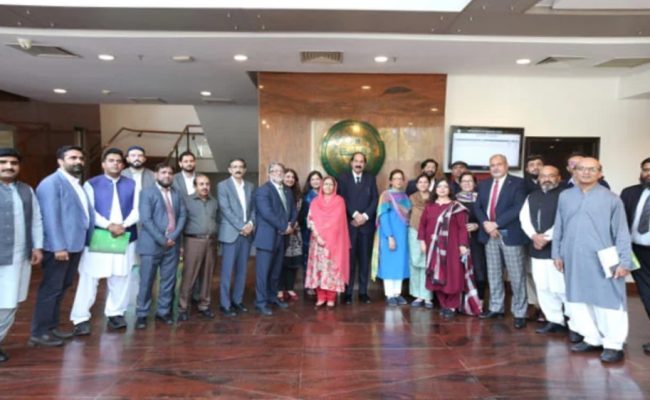A high-level Parliamentary Roundtable on Industrially Produced Trans-Fatty Acids (iTFAs), Partially Hydrogenated Oils (PHOs), and Public Health was recently held at the Pakistan Institute for Parliamentary Services (PIPS). Organized by Pakistan Youth Change Advocates (PYCA), the Centre for Peace and Development Initiatives (CPDI), and PIPS under the Transform Pakistan campaign, the event brought together lawmakers, public health experts, civil society representatives, and regulatory authorities to discuss critical measures for safeguarding public health through effective regulation of iTFAs and a legislative ban on PHOs.
The session began with opening remarks from Muhammad Rashid Mafzool Zaka, Executive Director of PIPS, who underscored the importance of fostering dialogue between parliamentarians and civil society. Pakistan Institute for Parliamentary Services (PIPS) is proud to facilitate this essential conversation on eliminating industrial trans fats and PHOs from our food system to ensure the health and safety of all Pakistanis,” he said.
Areebah Shahid, Executive Director of PYCA, set the tone for the discussion by drawing attention to the urgent health risks posed by industrial trans fats. She stressed the need for robust regulatory and legislative action to protect public health. “While some progress has been made, it’s essential that we establish mandatory governmental regulations on iTFAs across all food categories and work towards banning PHOs—the primary ingredient used in their production,” Shahid said.
Dr. Tausif Janjua from the Ministry of National Health Services, Regulations, and Coordination (MNHSR&C) delivered a sobering keynote, highlighting that 58% of deaths in Pakistan are caused by non-communicable diseases (NCDs), many of which are linked to the consumption of iTFAs. He emphasized the need for comprehensive regulatory measures to combat the growing burden of NCDs such as heart disease, diabetes, and obesity.
Munawar Hussain, in-country coordinator for the Global Health Advocacy Incubator (GHAI), presented global best practices in regulating iTFAs, providing valuable insights into successful international efforts to curb their consumption.
Concluding the first session, Dr. Shazia Sobia Aslam Soomro, Member of the National Assembly, pledged her commitment to the cause. “I regret that this issue wasn’t brought to my attention sooner, but now that it has, I will do everything in my power to ensure food safety and health for all Pakistanis,” she affirmed.
Civil society leaders, including Mukhtar Ahmed, Executive Director of CPDI, also emphasized the importance of strategic partnerships in achieving sustainable change, stressing the need for collective action to address the health crisis posed by iTFAs. This roundtable marked a crucial step in building momentum for legislative reform aimed at protecting public health in Pakistan.







